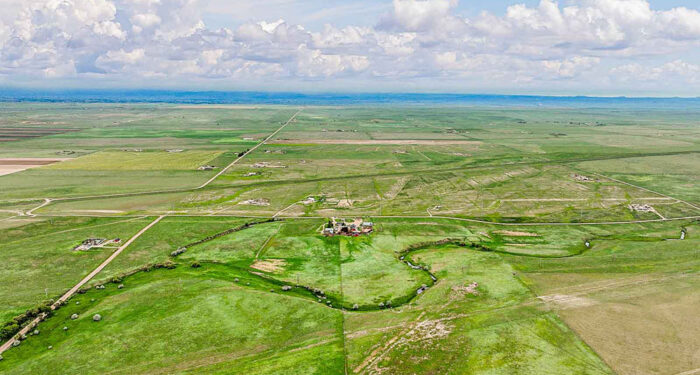We’re sharing our best advice for first-time ranch buyers. Buying a ranch for the first time can be an overwhelming process, especially if you aren’t working with an experienced broker to help guide you through the process. The first step in buying a ranch for the first time is finding a farm or ranch broker to represent you. Just as you trust your doctor or lawyer to guide you through health issues or legal matters, a ranch broker is an expert in the rural real estate industry who will help you understand the nuanced details of the market. Hall and Hall has 25 real estate partners, who are arguably the top 25 real estate professionals in the country, who are always ready to work with buyers (or sellers) and help clients meet their goals. We have 19 regional offices spread out in the states of Montana, Wyoming, Idaho, Colorado, California, Nebraska, Kansas, Texas, Tennessee, and Virginia, so there should be someone located near you!

To help you get started, we have compiled some snippets of advice from our brokers across the country.

The biggest challenge first time buyer have is identifying what they want to purchase. They should take advantage of every invite they get to any ranch, and attend as many field days as possible through extension programs and trade associations. – Tyler Jacobs
My advice when buying a ranch for production Ag purposes, is to get an honest opinion of year round carrying capacity and break down the cost per animal unit to compare with other ranches. You will have to weigh the amenities such as live water, improvements and access to what you prefer vs cost. It is easy to get caught up with the added attributes, but when it comes to production agriculture it is more important to the bottom line. – Mark Johnson
On ag deals it is also important to understand taxes as a component of operating costs. This can be crucial in the plains states for those not accustomed to higher property taxes but less overall purchase price per acre. – Robb Nelson
My best advice is to begin with very broad guidelines such as budget and critical features that are “non negotiable” such as it must have a livable house or must be in a certain state or area or must run x number of cows or have x number of crop acres. Then use that to cast a big net to gather everything that is for sale. It is essential then to get on the ground with a few selections. At that point one can narrow the criteria to the possible (i.e. properties that actually exist and are for sale) rather than begin with a set of manufactured criteria that are likely unattainable. – Jim Taylor
I find that the “where” is more important than the “what” for green buyers who are not just centered on production. It seems that they have some sort of a vision in their minds of what they want but don’t understand where that might exist in our market. “Proximity to a town” is also a common request, but for someone who lives in a large city what do they qualify as being “close” and to put it in further perspective they may spend an hour commuting ten miles whereby we can cover nearly ten times the distance in the same amount of time in rural America. Every state is different, and every state has its “sweet spots”. I usually start the dialog by having them give me some sort of vision and a general sense of price and then take them on a Google Earth tour using a screenshare. We have the advantage of having Montana Land Source to use that also shows sales data and lands that are currently for sale which gives them an even greater sense of the value of location. For me it has been 100% effective in getting brand new buyers acclimated in advance of any tours. Ultimately they figure out what ancillary things are important, but the only thing that is permanent is the land. What’s awesome is when they discover that their tenure as a tenant of the land is temporary and it is their obligation to take care of it and leave it better for the next person to occupy it. That obligation also creates long term value. It’s a homerun when people figure that out. – Tim Murphy
It’s always easy to focus on the attributes “we want”, but I find it more important to identify any limiting factors from an exit strategy, if and when buyer becomes a seller. Every purchase should be approached with an exit strategy and what that exit might look like. i.e. – is the ranch desirable to an ag buyer? A fly fisherman? A hunter? etc. Is there a sustainable ROI? Who might be the next steward of the land after you? Will your family inherit the property? Who is the buyer going to be after you? – Peter Widener
I always advise buyers to not lose sight of an exit strategy… even if today they don’t feel like they will ever be looking for an exit. – Bill McDavid

Have more questions? Fill out a contact form to get in touch with a broker!




